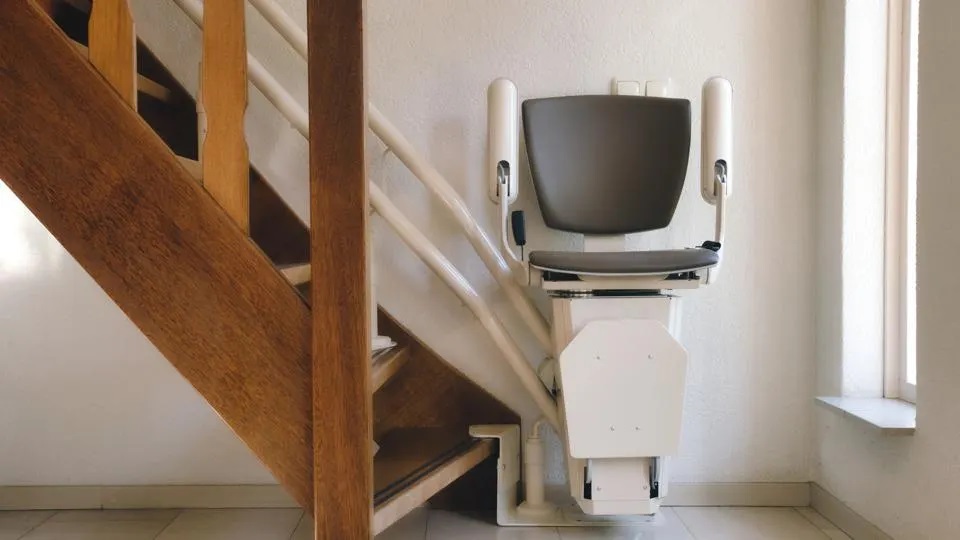1. What is a stair lift?
A stair lift is a mechanical device that is installed on a staircase to transport individuals up and down the stairs, typically for those who have difficulty with mobility or physical disabilities.
In contrast to residential elevators or stair-climbing devices, a stair lift conveys individuals along a staircase using railings affixed to the staircase floor. Visit adaptmyhome
Stair lifts are commonly classified into two categories:
straight stairlifts and curved stair lifts.
The latter are typically customized to fit the specific design of your staircase, resulting in a higher cost.
The elevator operates at an approximate speed of 0.15 meters per second, resulting in a typical travel time of a few minutes between floors.
2. The cost of stair lifts.
The pricing of products that require customization to suit your living environment is contingent upon how they are installed.
Curved stair lifts typically incur a cost premium of 100-200% in comparison to straight models, because curved variants necessitate bespoke fabrication to conform to the unique configuration of your staircase.
The standard cost range for a straight stair lift, which includes a one-year manufacturer warranty, is between £2,500 and £2,800.
The average cost varies for a curved stair lift, which includes a one-year manufacturer warranty and is between £4,000 and £6,000.
Please note that the prices mentioned do not include any additional costs that may be incurred after the purchase.
3. Warranty and Service
Stairlift warranties usually last 12 months. Because your stair lift will require repair often, the dealer and manufacturer will only provide a limited warranty.
After installation, ongoing maintenance is the real cost of owning a stair lift.
Before buying, inquire about post-warranty maintenance costs.
4. High-Pressure Sales Techniques
High-pressure sales methods include:
- A costly stair lift is heavily marketed.
- The customer must negotiate the high asking price.
- Some manufacturers store your data for years after you cease doing business with them.
5. Keeping Active
Keeping active all through life is one of the finest ways to improve health and extend your life. Walking even a short distance or using the stairs at home may have significant health benefits, according to scientific research. The research also reveals that all it takes to improve health is to do mundane tasks like sweeping, walking, or gardening.
6. Substitutes for Stairlifts
AssiStep is the most popular alternative to traditional stair elevators.
The AssiStep provides users with the additional assistance they need to maintain using their muscles to ascend stairs, contrasting straight and curved stair lifts. The AssiStep costs less and takes up less room than alternatives since it is mounted like a regular handrail, sticking out from the wall by no more than 3.5 inches (9 cm).
The AssiStep has five major benefits over traditional stair lifts:
- Allows you to keep up a healthy level of activity, which is beneficial
- Due to its mechanical nature, this option is both dependable and low-maintenance.
- Works with both straight and curved stairways
- Cheaper both to acquire and maintain

